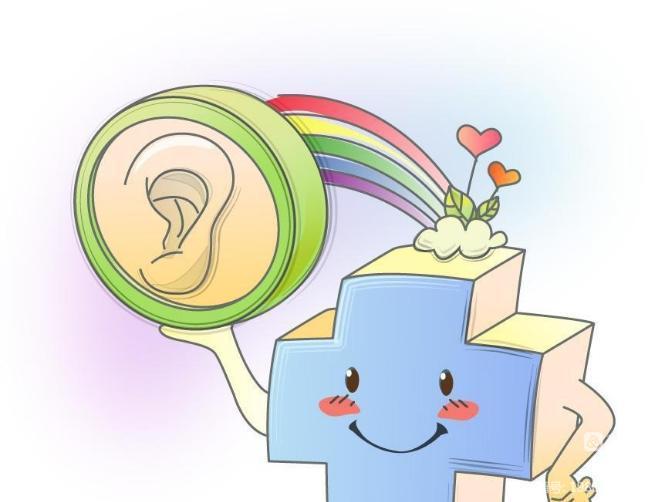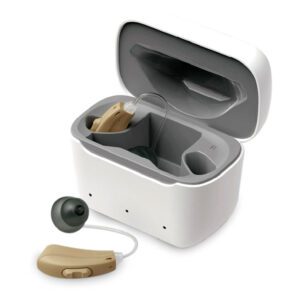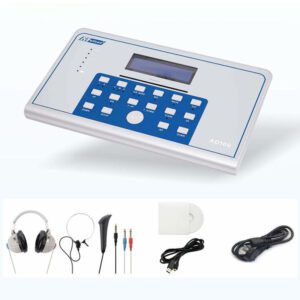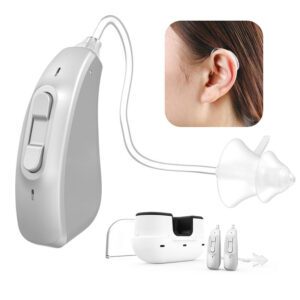The ear is an important organ of the human body, which allows us to hear wonderful sounds in this world.
Deafness and Hearing Loss are major public health problems facing the world. The latest World Hearing Report released by the World Health Organization shows that one-fifth of the world’s people are currently hearing impaired, and Hearing Loss affects more than 1.5 billion people worldwide. By 2050, one in four people is expected to have a hearing problem.

Protecting our ears should start with small daily tasks, and don’t wait until the hearing is damaged to start nursing. Here are 9 ways to protect your ears and keep your Hearing Healthy.
Use earplugs or sound-isolating earmuffs around loud noises
Bars, discos, concerts, KTVs, etc. are all places with high volume. Lawn mowers and chainsaws will make huge noises during use, which is very harmful to ears and hearing, and even dangerous.
Be sure to use earplugs or sound-isolating earmuffs to protect your ears in noisy places. There are music earbuds that have filtering that allows people to hear conversations and music, but still, reduce unwanted volume levels while maintaining as original sound quality as possible.
Turn down the volume
According to earlier data from the World Health Organization, 1.1 billion adolescents and young adults worldwide are at risk of noise-induced hearing loss from unsafe use of audio equipment.
If you like listening to music through headphones or earbuds, you can protect your ears by following the 60/60 rule. When using the headset, the volume should not exceed 60% of the maximum volume of the device, and the duration should not exceed 60 minutes.
Over-ear headphones are especially dangerous because they are closest to the eardrum, so choose over-ear headphones if possible.
Give your ears time to recover
If you are exposed to high volume or noise for a long time, your ears need time to recover. If you can, take breaks, such as five minutes of quiet, to allow your ears to recover.
Researchers have found that it takes an average of 16 hours of quiet for your ears to recover from a night of loud noises.
Do not use cotton swabs in your ears
People usually use cotton swabs to clean the ear canal, but this method is not correct. The ear has a self-cleaning function, and earwax can prevent dust and other harmful particles from entering the ear canal. Using a hard cotton swab to clean the ear can easily damage the ear canal and possibly the eardrum.
Take medications only as prescribed
Certain drugs, such as aspirin and ibuprofen, can sometimes cause hearing loss, and some antibiotics may cause deafness. So please follow the doctor’s advice when using the medicine.
keep ears dry
Too much moisture can allow bacteria to enter and invade the ear canal, which can easily lead to ear infections. After bathing or swimming, gently dry your ears with a towel. If you feel the water in your ear canal, tilt your head sideways and gently pull on the earlobe to let the water come out.
Swimming earplugs can also be used while swimming to keep water dry and healthy by blocking water from entering the ear canal.
More exercise
Did you know that exercise is good for your ears? It’s true. Aerobic exercise like walking, running, or cycling gets blood pumped to all parts of the body, including the ears. This helps the inner part of the ear stay healthy and perform to its fullest potential.
Be sure to stay safe! Always wear a helmet when riding a bike. A concussion can damage your hearing if you fall and hit your head.
Control stress levels
Stress and anxiety are associated with both temporary and permanent tinnitus. High levels of stress lead to emotional tension and vasoconstriction, which is an instinctive response. This stress can lead to tinnitus and even deafness symptoms.
Include hearing screenings in your regular checkups
Because hearing loss develops gradually, regular hearing screenings can detect early signs of hearing loss and take action as soon as possible.



